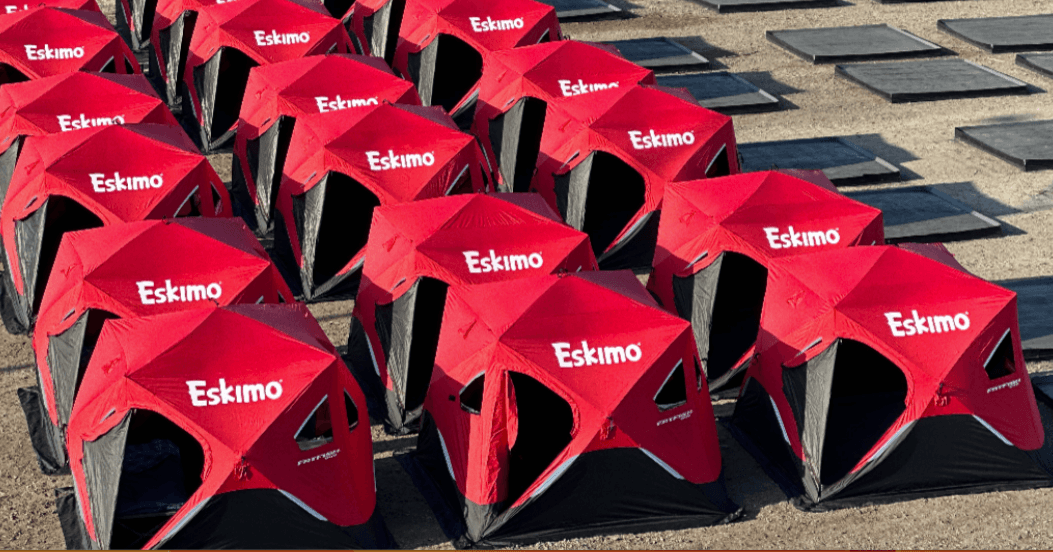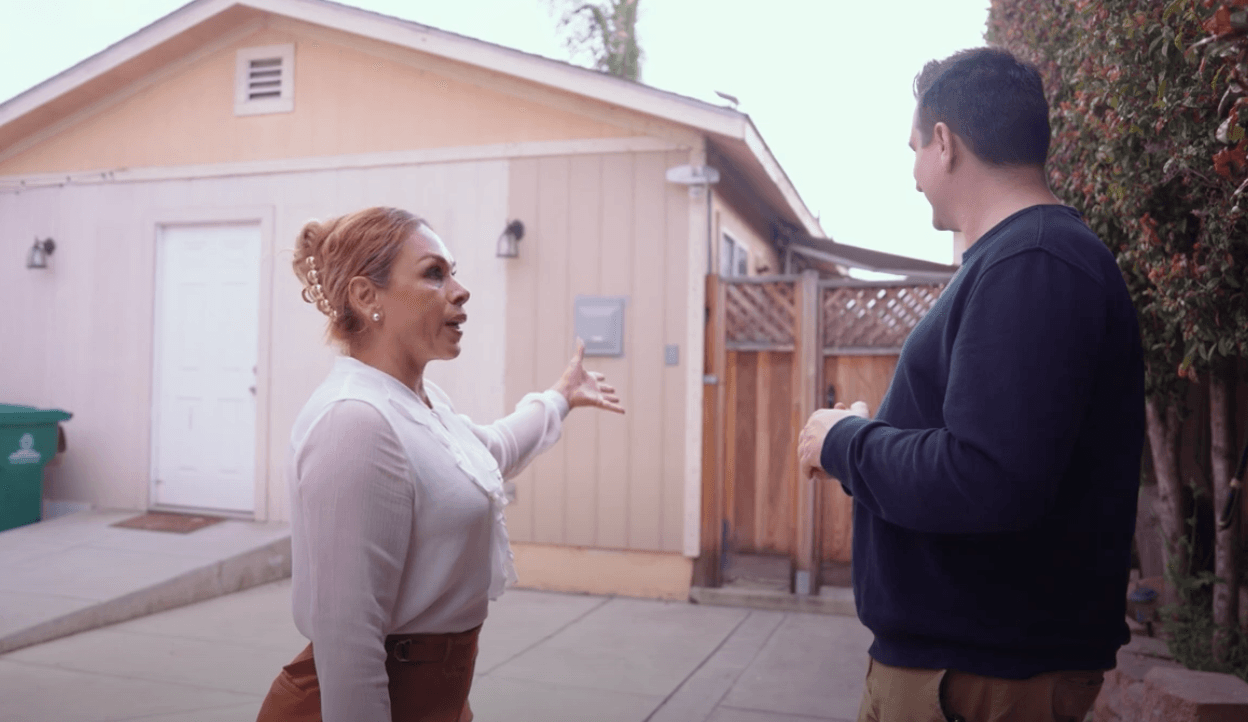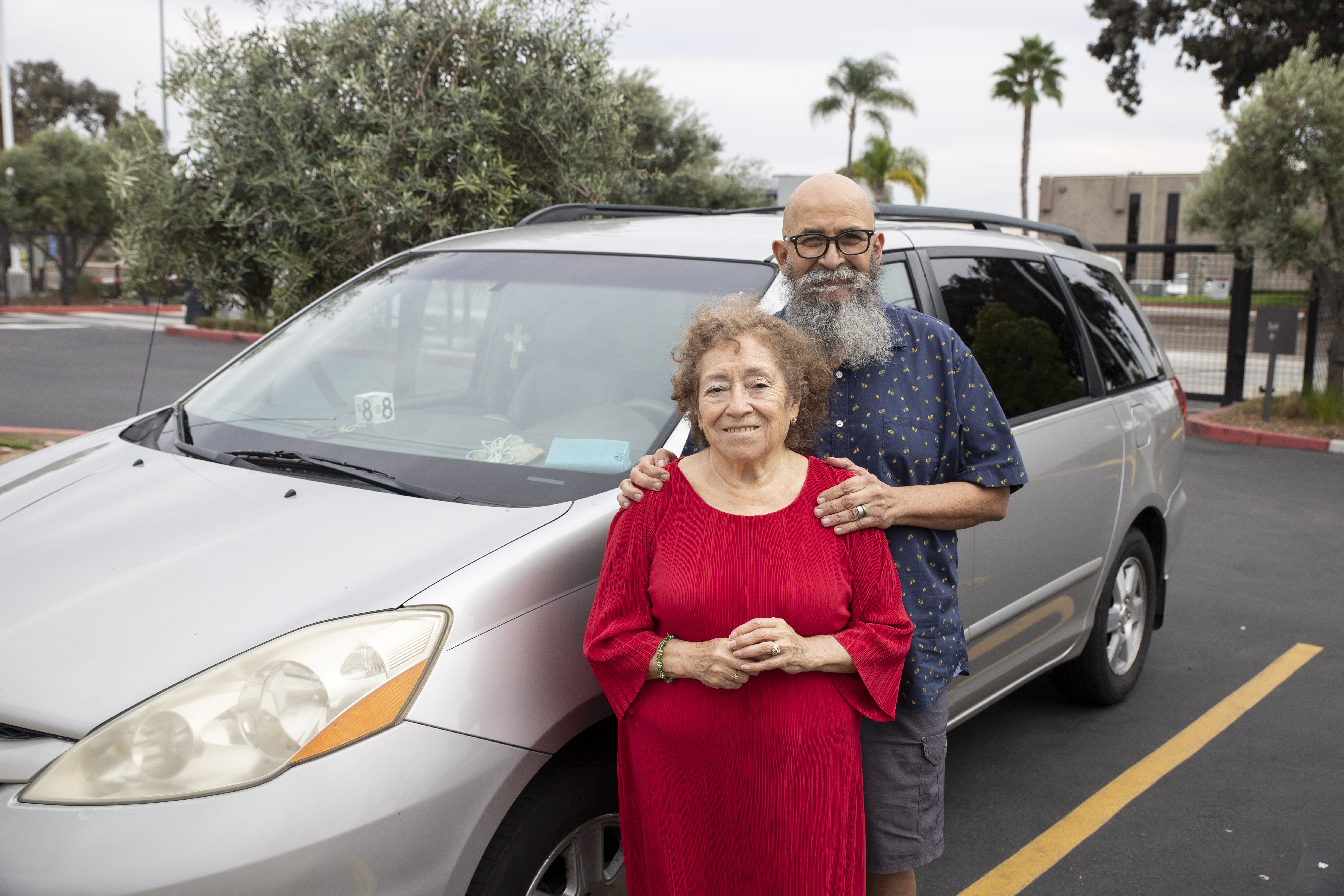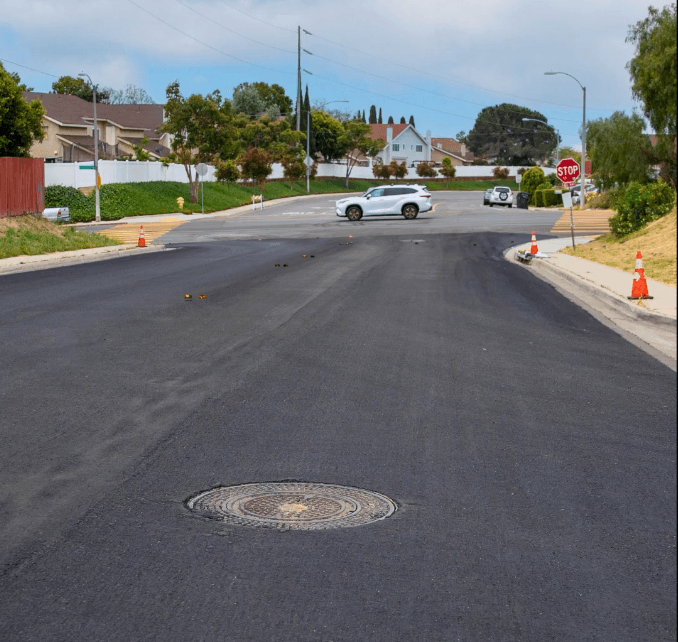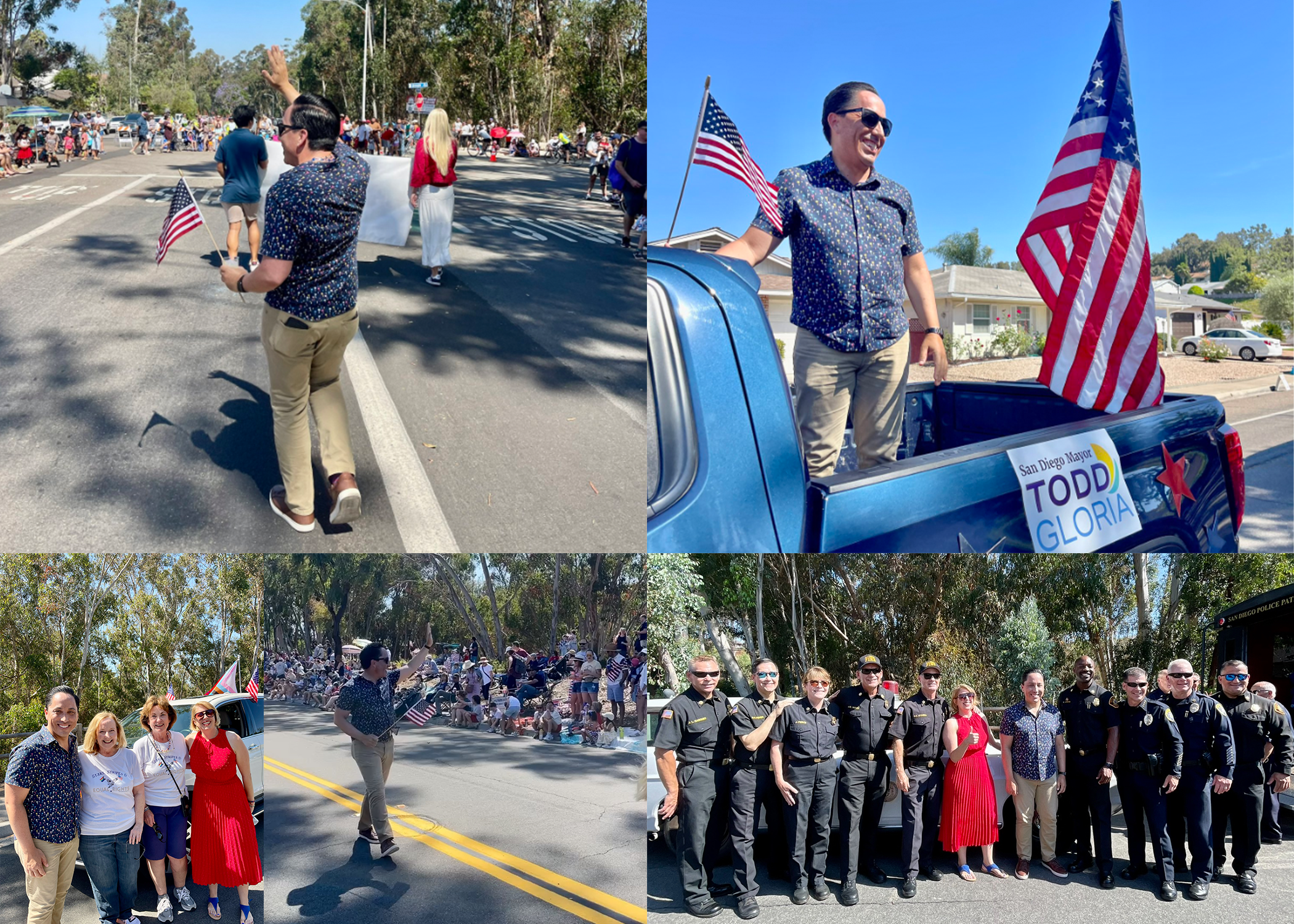|
|
|
|
We recently celebrated a significant street repair milestone in Nestor, with the completion of 250 miles of slurry seal resurfacing citywide for the fiscal year that ended on June 30.
This achievement marks the most productive year for road resurfacing in a decade, underscoring my commitment to fixing the damn roads!
We're continuing this momentum in the new fiscal year, with a record investment of $140 million in street improvements in every neighborhood across San Diego.
However, while we’re investing more than ever, making up for decades of neglect of our road network and other infrastructure is going to take many hundreds of millions of dollars to fully address. That’s why, in a few weeks, the City Council will consider putting a sales tax adjustment on the November ballot to generate additional funding – 100% of which will stay right here in the City to help pay for this important work.
This is the opportunity to fund San Diegans’ neighborhood infrastructure priorities and make San Diego the great and well-functioning City we all know it can be with the right care and investment.
As always, it’s an honor to serve as your Mayor. |
|
|
|
Supreme Court Ruling Supports San Diego's Efforts to Address Homelessness |
|
|
San Diego has made significant strides to address homelessness over the last three years by more than doubling the number of options for unhoused San Diegans to come off the street, including traditional congregate and non-congregate shelters, Safe Parking spaces and Safe Sleeping slots.
Additionally, the implementation of our Unsafe Camping Ordinance, a measure designed to establish clear rules regarding encampments, has helped our work to get people out of unsafe, unsanitary street encampments and connected to shelter and services to help them end their homelessness.
We passed this ordinance last year, and it has already proven to be highly effective. The City of Grants Pass v. Johnson, a recent U.S. Supreme Court decision, has reinforced the legality of our approach. This landmark ruling held that anti-camping ordinances do not violate the Eighth Amendment, overturning a previous appeals court ruling.
Concurrent with the enforcement of the ordinance, we opened two Safe Sleeping sites to offer alternatives to those living on the streets. These sites provide a safer environment and access to essential services, such as behavioral health/addiction treatment, job training and housing navigation, which are crucial steps toward ending homelessness.
The results of this approach speak for themselves. Since the ordinance took effect, the number of people living in encampments downtown has decreased significantly. In May 2023, just before the ordinance was passed, there were 2,104 individuals living on the streets of downtown San Diego. By May 2024, after 10 months of enforcement and the opening of two Safe Sleeping sites with over 500 tents, that number had dropped to 826.
Importantly, our approach has not resulted in widespread arrests. The outreach that precedes enforcement, along with our progressive enforcement model that offers a warning prior to citation and arrest, have encouraged many previously resistant individuals to accept shelter and help.
Our new Police Chief, Scott Wahl, brings extensive experience in neighborhood policing and is committed to ensuring consistent enforcement of the Unsafe Camping Ordinance across the city. While continuing to enforce these laws, we are equally committed to continuing to provide people with safe places to go, ensuring that they are not left without options.
San Diego remains dedicated to tackling homelessness through compassionate and effective measures. Bolstered by this recent Supreme Court decision, we will continue to prioritize the well-being of all our residents as we work toward a future where everyone has access to safe and secure housing. |
|
|
ADUs: A Key Solution to Building Generational Wealth and Addressing San Diego's Housing Crisis |
|
|
San Diego’s Accessory Dwelling Unit (ADU) program has proven to be a successful strategy in helping to address the city's housing crisis. Building an ADU is also an opportunity for San Diegans to build generational wealth and create new paths to homeownership, offering financial stability and housing options for families.
One example is Soveida Magana-Soto from San Ysidro, who began constructing her first ADU in 2019 with her future in mind. Her story highlights how the City’s support and guidance can help homeowners navigate the pre-building process, making the dream of adding an ADU and the extra rental income it generates achievable without substantial upfront costs.
By amending regulations that make it easier and less expensive to build ADUs, the City is helping provide this new source of affordable and below-market housing throughout every neighborhood of San Diego. These units offer flexible and affordable living spaces that can accommodate extended families and serve as accessible housing for seniors and people with disabilities.
The City has also introduced the ADU Bonus Program, which allows for the construction of additional units on the same property if they are deed-restricted as affordable housing for 10 or 15 years.
Since its launch in 2021, 255 deed-restricted affordable ADUs have been approved. Overall, more than 4,500 ADUs have been approved for construction since 2019.
These efforts are part of my broader Homes for All of Us initiative to expand housing options and alleviate the housing shortage by removing barriers and offering incentives when it comes to building new homes.
By continuing to support and promote the ADU program and other housing, we are making significant strides toward providing affordable housing solutions and ensuring that all San Diegans can have a roof over their heads at a price they can afford. |
|
|
Addressing the Rise in Vehicular Homelessness with Expanded Safe Parking Program |
|
|
The most recent Point-in-Time Count by the Regional Task Force on Homelessness San Diego (RTFHSD) revealed a sharp 44% increase in the number of people living in their cars, rising from 768 individuals last year to 1,104 this year.
What this underscores is the critical need to expand our City’s successful Safe Parking program to immediately help these San Diegans in need. The plan at the City’s H Barracks site will double our Safe Parking capacity and connect approximately 200 more San Diego households to services designed to end their homelessness.
The expansion of the Safe Parking program is essential in providing secure and dignified spaces for San Diegans living in their vehicles. These sites not only offer a safe place to sleep, but also serve as a gateway to vital services that can help individuals transition to permanent housing.
We know that by serving the specific needs of those living in cars, we can significantly impact their lives and help get them back into housing. Often times, these clients are employed and experiencing homelessness for the first time.
Our goal is to ensure that every San Diegan has access to the support they need to move off the streets and into stable housing. By expanding the Safe Parking program, we can address the immediate needs of those living in their vehicles while connecting them to the resources necessary for long-term solutions. |
|
|
GETTING IT DONE - FIXING OUR STREETS |
|
|
Fixing Streets in Skyline-Paradise Hills |
|
Several streets in the Skyline-Paradise Hills community recently got slurry sealed! Slurry sealing is a crucial preventative measure against street deterioration, extending the life of roads already in decent condition. |
|
|
|
MAYOR GLORIA AROUND TOWN |
|
|
|
Celebrating Independence Day in San Diego |
|
Celebrating the Fourth of July is always a special time in San Diego. This year, I joined San Diegans in Scripps Ranch and Rancho Bernardo to commemorate our country’s independence. The Scripps Ranch Parade was a great opportunity for me to connect with neighbors and celebrate our nation's freedoms. The Rancho Bernardo “Spirit of the Fourth” Parade was equally fantastic, marking its 55th anniversary. Special thanks to the Scripps Ranch Civic Association and the volunteers in Rancho Bernardo who worked so hard to organize these memorable community celebrations. |
|
|
COMMUNITY UPDATES |
|
|
Learn More about Serving Your City |
|
The City has 49 Boards and Commissions that advise my administration and the City Council on many important issues. My office’s Director of Appointments/Boards and Commissions is hosting a Lunch + Learn where you can hear all about the many opportunities to serve on a Board or Commission and how to apply.
|
|
|
U.S. Passport Services Expanded Pop-Up Events Across the City |
|
The Office of the City Clerk passport services will host pop-up events at various City of San Diego libraries through May 2025. These events will provide full-service passport processing including passport photos.
Here are the upcoming scheduled pop-up events:
July 26, 2024, 10 a.m. to 1 p.m. Appointments are available now at www.sandiego.gov/passports
August 2, 2024, 10 a.m. to 1 p.m. Appointments are available now at www.sandiego.gov/passports
The following locations will have appointments available 30 days before the event. To be added to our interest list, please sign up at this link.
Mira Mesa Library, 8405 New Salem Street - September 2024
Paradise Hills Library, 5922 Rancho Hills Drive - October 2024
Pacific Beach/Taylor Library, 4275 Cass Street - November 2024
Mission Valley Library, 2123 Fenton Parkway - February 2025
Linda Vista Library, 2160 Ulric Street - March 2025
North Park Library, 3795 31st Street - April 2025
Ocean Beach Library, 4801 Santa Monica Boulevard - May 2025
To view more information about applying for your U.S. Passport, or for your child, please visit our website at www.sandiego.gov/passports. To contact us for an appointment please call 619-533-4000 or email cityclerk@sandiego.gov. |
|
|
Upcoming USIBWC San Diego Citizens Forum |
|
Join the U.S. Section of the International Boundary and Water Commission (USIBWC) for an in-person and virtual public meeting on July 10 from 5:30–7:30 p.m. at the Coronado Community Center.
The meeting will cover updates on the South Bay International Wastewater Treatment Plant and regional wastewater projects, with presentations from Morgan Rogers of the USIBWC and the County of San Diego Department of Parks and Recreation. Public comments are welcome.
For more information and to join the meeting virtually, visit the USIBWC website. |
|
|
Environmental Justice Element Receives City Council Approval |
|
On July 1, the San Diego City Council adopted a new Environmental Justice Element as part of the City’s General Plan.
This element aims to center environmental justice in the City's planning process by addressing pollution, health risks, and access to public facilities.
Extensive community engagement informed the policies, focusing on inclusive public engagement and improving conditions in Environmental Justice Communities. This initiative represents a significant step towards creating equitable and healthy communities for all San Diegans.
|
|
|
Free Summer Meals for Kids |
|
FREE summer meals for your kids are available this summer for ages 18 and under!
The San Diego Unified School District is once again partnering with the City of San Diego and the California State Library to offer nutritious and delicious food during the summer months.
Meal locations include select San Diego Unified schools, libraries, parks & recreation centers, and other community sites.
The Summer Feeding Program kicks off June 10 and continues through August 2, open Monday through Friday. Times and locations listed here. |
|
|
San Diego Regional Cyber Lab Supports Local Businesses with Cyber Security Needs |
|
The City of San Diego’s Cyber Lab has launched "My eCISO," an AI-powered web-based resource designed to help public and private organizations enhance their cybersecurity. This chatbot assists users, such as small business owners, in developing a cybersecurity program by evaluating their current defenses and providing actionable steps for improvement.
The initiative, created in collaboration with California Polytechnic State University and Amazon Web Services, aims to support organizations without a dedicated Chief Information Security Officer.
Users can interact with the AI chatbot through a natural language interview to assess their cybersecurity status and receive a detailed report card with recommendations based on NIST guidance. Prioritizing security and trust, My eCISO ensures that only the original data submitter can access their information, with conversations automatically deleted after 30 days. This tool is part of San Diego’s Regional Cyber Lab offerings, which provide cybersecurity training and resources to the local community.
To get started, visit myeciso.com. |
|
|
|
Get the latest news from the City on Inside San Diego |
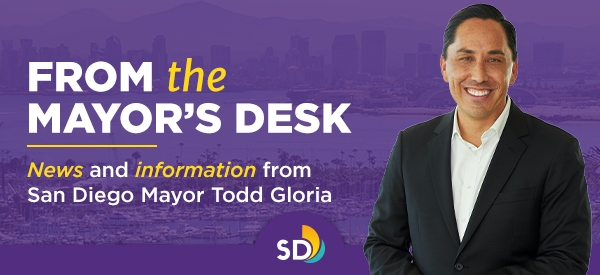
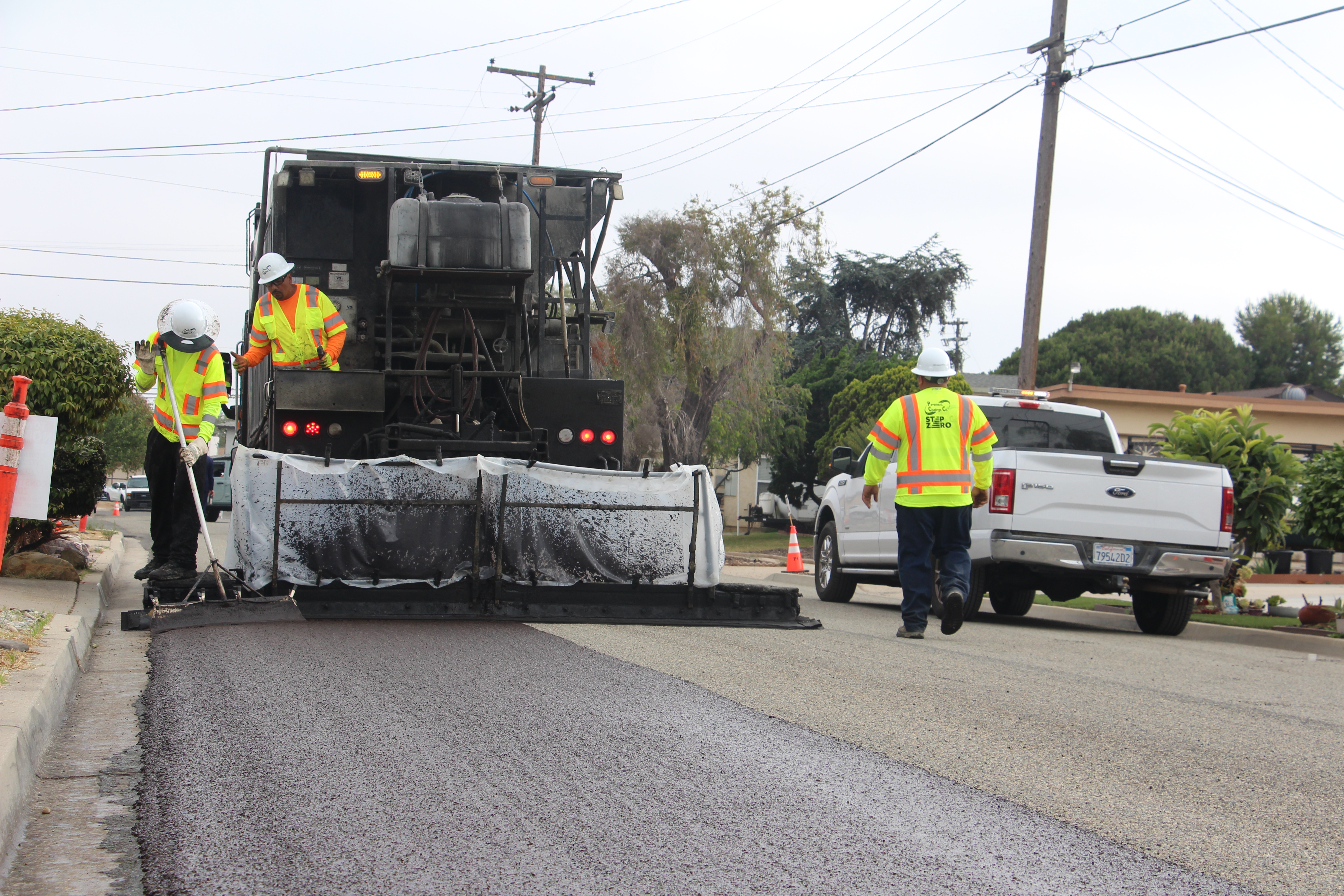
.png)
